View or download the May/June 2019 issue as a color PDF here, or read single articles below. Articles in this issue: New Plans for McLean Land Density is key issue as town considers proposals for two McLean campus parcels By Sue Bass Twenty years ago, Belmont voted to allow development on McLean Hospital land on Belmont Hill. Now McLean is coming back to the town with new proposals for two parcels of land that are still undeveloped. Read more. Composting in Belmont: Breaking it Down By Mary Bradley Composting is no longer just a backyard hobby for the ardent gardener. [READ MORE]
New Plans for McLean Land

Density is key issue as town considers proposals for two McLean campus parcels By Sue Bass Twenty years ago, Belmont voted to allow development on McLean Hospital land on Belmont Hill. The town-wide referendum of July 1999 endorsed the previous Town Meeting vote to change zoning for 238 acres. The largest portion for new construction became the Woodlands, 121 luxury townhouses on twenty-six acres. Another portion became Waverley Woods, 40 units of affordable housing on an acre and a third. Some land was preserved from construction. One hundred and twenty acres were set aside for open space, and fourteen acres [READ MORE]
Composting in Belmont: Breaking it Down
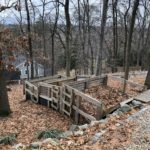
By Mary Bradley A Virtuous Cycle Composting is no longer just a backyard hobby for the ardent gardener. It has Facebook groups and a following from environmentalists, politicians, and scientists. Most praise compost as a means to keep food waste out of landfills and reduce release of methane. While consensus ends there, composting has evolved from a tale of worms, microbes, and bacteria to the realm of politics, emerging technologies, and scientific disputes. For me, however, composting is about magic: Wave one hand over an orange peel clutched in your other hand, and reveal a fistful of dirt. If that’s [READ MORE]
WEEDS: Plants in the wrong place
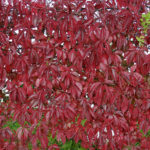
By Lucia Gates All photos courtesy of Wikimedia Commons Like gardeners everywhere, we Belmontians struggle with weeds. While it might be tempting to take the easy approach and eliminate them with herbicides and chemical weed killers, as gardeners we also know that we have to protect everything in our garden. There are ways to manage weeds safely. This article focuses on flower beds and not lawns, although some of the information will be useful in grassy situations. Also, some weeds, such as wild grape vines and wild multiflora roses, are unlikely to be a problem in a flower bed, but [READ MORE]
Painstaking Progress on Belmont’s Multi-Decade Environmental Emergency
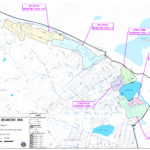
By Anne-Marie Lambert Belmont is working under a federal consent order to reduce the pollution it sends into Boston Harbor from leaks and connections of underground sewer pipes into the storm drain system. Cleanup According to the town’s January 30 Compliance Report to the US Environmental Protection Agency (EPA), Belmont redirected an additional 126 gallons per day (GPD) of sewage from our brooks and ponds to the Deer Island treatment plant in Boston Harbor. Sources included leaking sewer service laterals and sewer segments on Brettwood Road and Pierce Road (84 GPD) and three leaking sewer service laterals along Hoitt Road [READ MORE]
Belmont Roots, May/June 2019
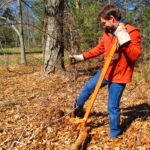
Environmental News, Notes, and Events By Meg Muckenhoupt Well, it’s spring, sort of. The average last frost date in Belmont is somewhere between May 1 and May 11, depending on which website you believe—the Old Farmer’s Almanac? Plantmaps.com? But my grandmother in Newton never planted her tomatoes before Memorial Day. Warmth-loving plants such as tomatoes and peppers are sensitive to soil temperature as well as air temperature. They can suffer “transplant shock” and become stunted and grim if roots are a bit too chilled. Seeds are more secure in their identity, and will simply sit and shiver in the soil [READ MORE]
Another Successful Lone Tree Hill Volunteer Day
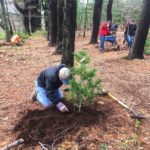
By Radha Iyengar On Saturday, April 27, the Belmont Citizens Forum (BCF), in conjunction with the Judy Record Conservation Fund, held its seventh annual Lone Tree Hill Volunteer Day. The volunteers braved the cold and windy weather, and the rain held off. At the Pine Allee, the efficient volunteers planted 63 white pine saplings, some of which were transplants from Mass Audubon’s Habitat Education Center and Wildlife Sanctuary. The new plants replaced some of the Allee’s missing trees as well as some of the dead saplings from volunteer day plantings over the last two years. At the other end of [READ MORE]

